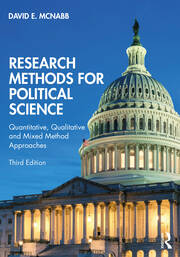
Brand
- M&S Collection 121.219
- Rhodes + Scholes 96.629
- Sandvik Coromant 41.322
- ELESA 39.987
- Portwest 34.823
- Mascot 31.663
- Slingsby 24.664
- Routledge 23.707
- Blaklader 21.219
- MTP Products 17.905
- Maroxe 16.824
- Gemini Interiors 16.802
- Nobody's Child 16.177
- Gildan 15.925
- Russell 15.259
- Johnson & Johnson 14.811
- Sealey 14.484
- BOSS 13.726
- Fruit Of The Loom 13.702
- Kustom Kit 13.612
- Autograph 13.514
- Nike 11.917
- Moon Magic 11.900
- Result 11.783
- TopVue 11.699
- White Stuff 11.610
- Ergomat 11.556
- Regatta Professional 10.836
- Air Jordan 10.709
- Lyle & Scott 10.553
- Dams 10.372
- ECCO 10.011
- Life Essentials 9.959
- EUROKRAFTpro 9.957
- Stanley 9.397
- KENZO KIDS 9.121
- Alcon 8.942
- Premier 8.761
- Kennedy 8.751
- KAISER + KRAFT GMBH 8.711
- Festo 8.579
- Impulse 8.388
- Sid & Sam 8.119
- Style and Chic 7.844
- Carpe Diem Beds 7.825
- Merkel Designers 7.627
- ORN 7.600
- Unbeatable Bargains 7.498
- Tyrell & Tyrell 7.429
- 3M 7.427
- The Home Maker 7.188
- Beeswift 7.029
- B&C 7.025
- Monsoon 7.012
- SOL'S 7.000
- Direct Imports 6.987
- All Things Good 6.970
- Discount Dealers 6.916
- R and M Furniture 6.890
- Wonders 6.886
- Millennium Furniture 6.883
- Casper Homes 6.881
- FatFace 6.833
- Pour Moi 6.797
- Merlin Deals 6.570
- Seasalt Cornwall 6.538
- Kennametal 6.468
- Decor Base 6.365
- Prestigious Textiles 6.349
- Brittle & Co 6.286
- Regatta 6.254
- Design Hut 6.190
- TIMCO 6.106
- Dunlop 5.881
- Native Spirit 5.803
- B&C Collection 5.711
- CRC Press 5.641
- Body by M&S 5.638
- Vale 5.604
- Medway 5.579
- Ace & K 5.485
- adidas 5.432
- Bausch & Lomb 5.376
- Timberland 5.376
- Zoro Select 5.339
- BILLIEBLUSH 5.320
- Silent Gliss 5.310
- Charlotte Dunes 5.285
- Crew Clothing 5.254
- Watco 5.253
- Dormer 5.198
- Outsunny 5.177
- SOSANDAR 5.154
- Callaway 5.153
- SHINEANDGLORY 5.137
- Savings Store 5.100
- Finery London 5.063
- Co 5.030
- C&P 4.929
- Liverpool FC 4.924
Colour
- Black 241.194
- White 104.409
- Blue 67.947
- Navy 48.612
- Grey 43.619
- Red 36.636
- Green 35.632
- Brown 32.490
- Pink 29.380
- Yellow 22.964
Size
- XL 58.363
- 2XL 39.364
- S 37.291
- M 36.491
- L 35.151
- Medium 32.825
- Large 32.544
- Small 31.839
- 3XL 27.852
- XS 27.654
Gender
Merchant
- Zoro UK 974.190
- Marks & Spencer UK 334.097
- Home Done 177.192
- Zoro UK Limited 117.651
- Alensa.co.uk 70.625
- Workwear Supermarket 63.249
- LuisaViaRoma.com 63.088
- Kids around 61.533
- Glisshop uk 60.845
- Maroxe 45.499
- AndLight.co.uk 38.432
- Kick Game 34.648
- Routledge 32.726
- MyTrendyPhone.co.uk 31.331
- Your Stylish Home 28.699
- Orthopeca UK 21.533
- K4G.COM 19.491
- Golf Gear Direct 17.107
- Suit Direct 16.891
- Click Golf 16.792
- QD Stores 16.341
- Belveto 16.058
- Luisaviaroma Css 15.925
- Nobody's Child - Cabiro 13.855
- Plusshop UK [OLD] 12.954
- Acorn Fire & Security 12.349
- Moon Magic 11.900
- RS Components UK 11.732
- Lime Lace 10.894
- gb.ecco.com 10.610
- Seal Medical 10.517
- Lyle & Scott 10.295
- Craigmore UK 9.621
- Selfmade.com 9.447
- My-Deco-Shop 9.382
- Perfect Little Thing 7.963
- carpediembeds.co.uk 7.825
- Wrong Weather 7.773
- Slam City Skates 7.460
- Building Plastics Online 7.112
- Wonders - Official Site 6.886
- Cherry Lane 6.879
- Grace & Co Jewellery 6.788
- Argento 6.751
- Ann's Cottage 6.539
- uk.plusshop.com 6.476
- Erysta 6.325
- Bathshack.com 5.944
- Car Smart 5.739
- Mobility Smart 5.644
Price (EUR)
- <5 139.983
- 5 - 10 128.746
- 10 - 20 263.678
- 20 - 50 637.286
- 50 - 100 495.622
- 100 - 200 370.294
- 200 - 500 308.896
- >500 364.756
























